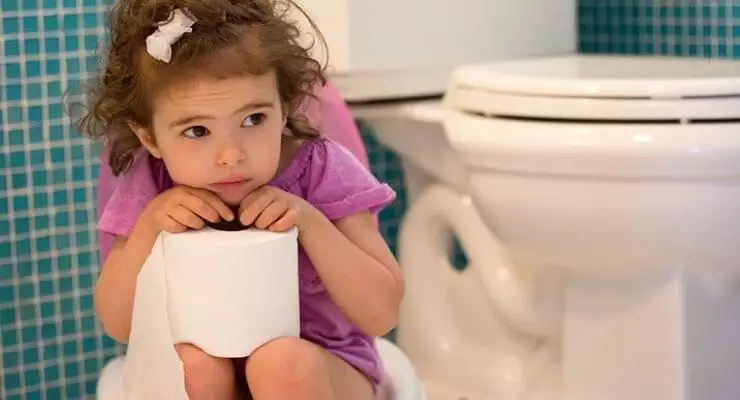It’s always frustrating when your child is suffering from diarrhea, but especially so when the diarrhea just won’t seem to go away. Chronic diarrhea isn’t caused by the same things that cause acute, or short-term, diarrhea, and the symptoms of the two differ. If you suspect your child is suffering from a condition that may be causing chronic diarrhea, make an appointment to speak to her pediatrician as soon as possible.
What Is Chronic Diarrhea?
Chronic diarrhea is actually a common problem among young children; so common, in fact, that it is sometimes referred to toddler’s diarrhea. The main difference between acute diarrhea and chronic diarrhea is the length of time the problem persists. Chronic diarrhea lasts for longer than 14 days and typically features between two and six bouts of diarrhea daily. Some children experience frequent abdominal pain, but many toddlers with the condition have no symptoms other than watery stools.
Chronic Diarrhea Causes
Your toddler’s nagging problems with diarrhea can be caused by a number of things, including lactose or gluten intolerance; food allergies; digestive tract infections caused by parasites, bacteria or viruses; an inflammatory bowel disease like Crohn’s disease; Irritable Bowel Syndrome; or immune system problems. The most common cause, however, is usually dietary. Regularly drinking too much juice, especially apple or pear juice, and consuming too little fiber could be what is behind your toddler’s troubles.
Treatment for Chronic Diarrhea
The first thing to be concerned about when treating diarrhea is to prevent dehydration. Your child should drink plenty of fluid, especially broth and, if possible, a commercial rehydration solution. If your child is not hydrated and eats well but still has diarrhea and consistently fails to gain weight, you may need to make an appointment with a pediatric gastroenterologist to determine if there is an underlying digestive system disorder that is the root of the problem.
What You Can Do
Try to include blander foods in your child’s daily meals, such as plain cooked rice, bananas, crackers and boiled potatoes. Limit the amount of caffeinated, sugary and greasy foods your toddler eats, and avoid giving your child fruit juices other than occasional glasses of orange or white grape juice. Also, avoid serving your child fruits like apples, pears, cherries and peaches.
When to Call the Doctor
Contact your doctor immediately if your child’s diarrhea contains blood, pus or is a black, tarry color. Also seek medical help if your child complains of extreme abdominal pain, develops a fever of more than 102 degrees F or displays the following symptoms of dehydration: moodiness, no tears while crying; excessive thirst; a sunken look to the eyes and cheeks, and skin that doesn’t flatten out after being gently pinched and released.
Toddlers With Chronic Diarrhea






